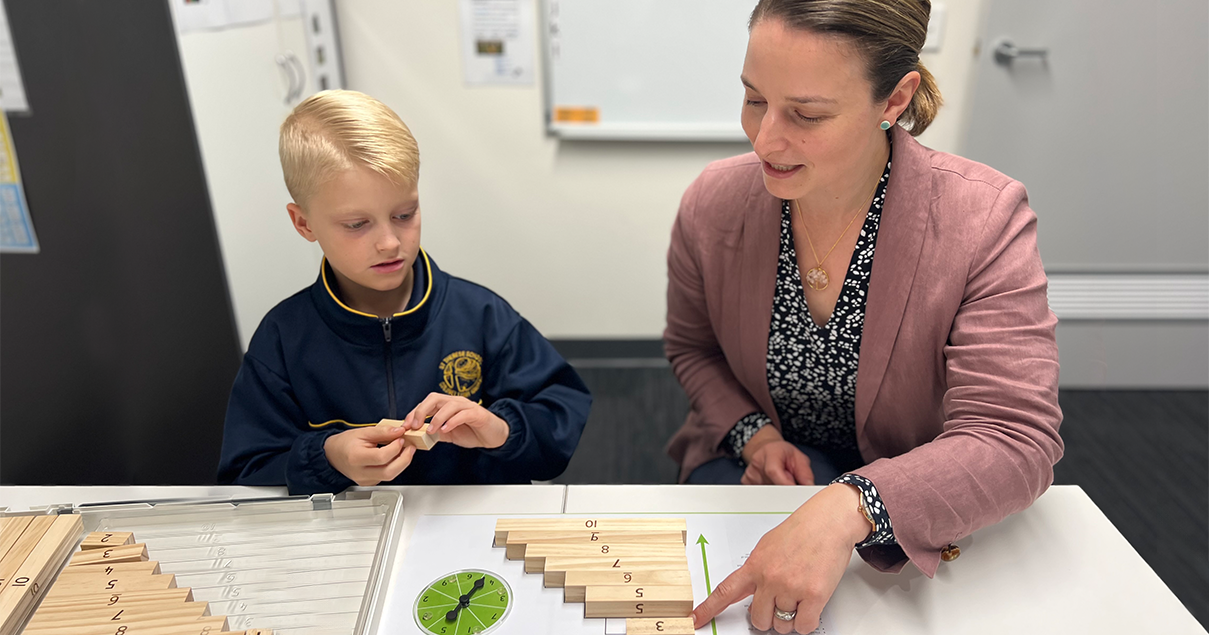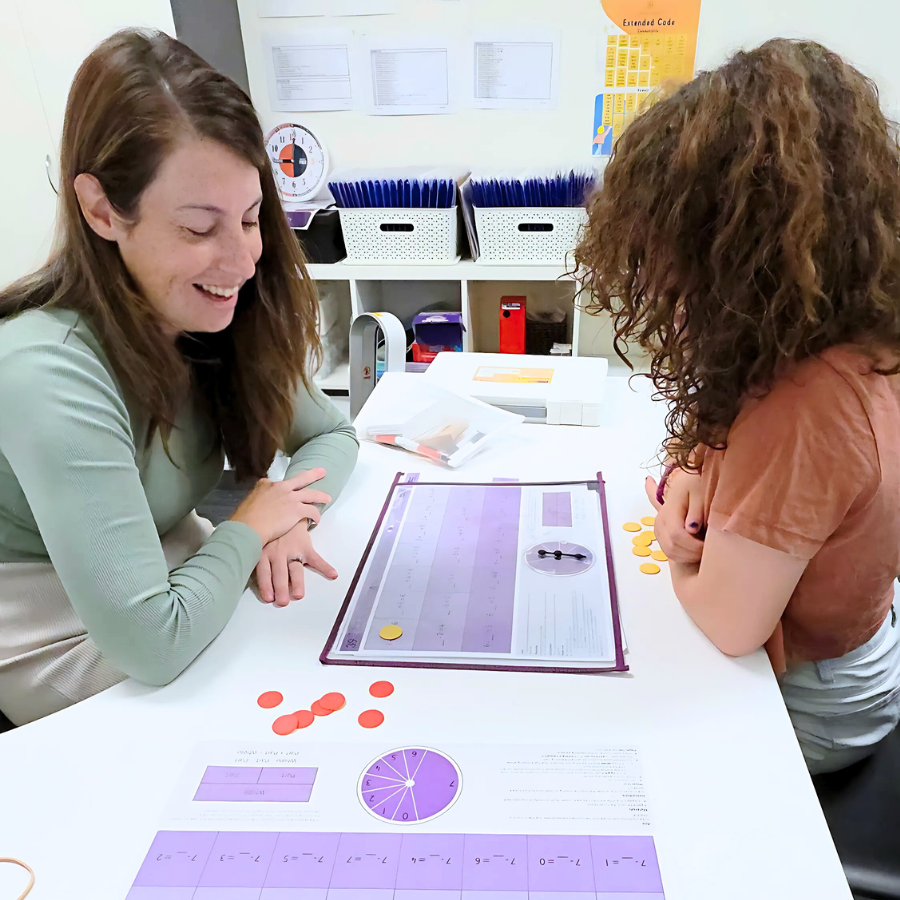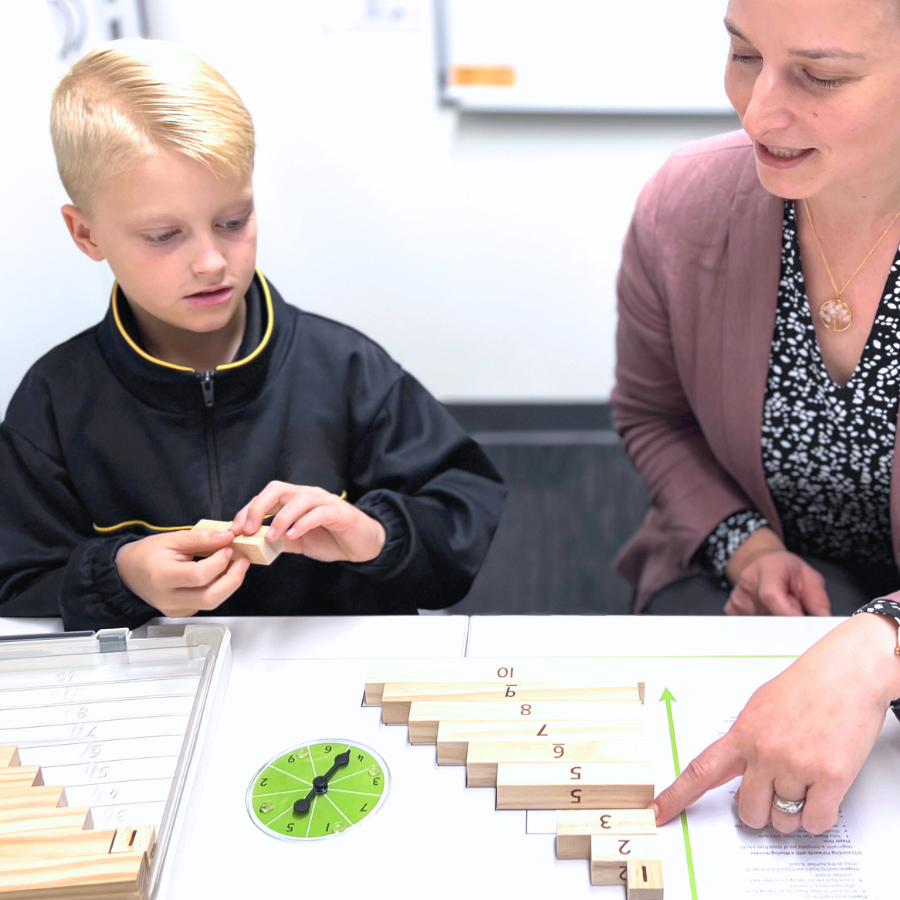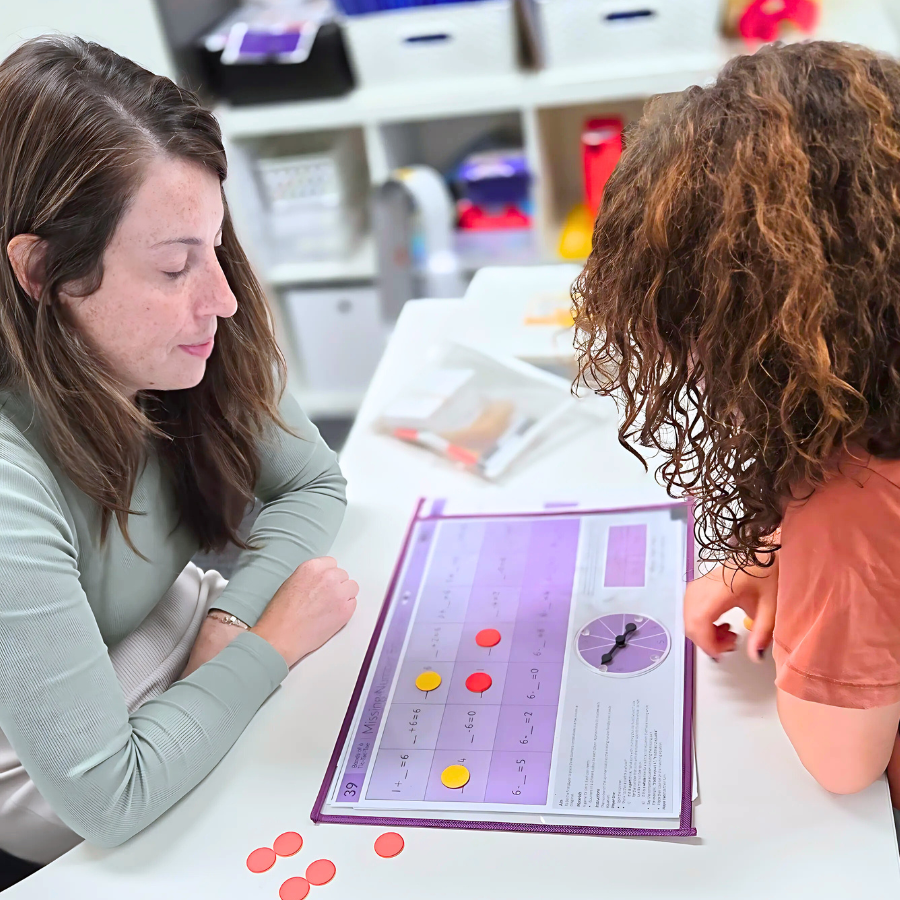Numeracy Clinic
The SPELD SA Numeracy Clinic helps students build confidence and skills in maths through personalised sessions with experienced educators.


Numeracy Intervention
• For students from 5 years old
• Individualised support through regular 1:1 sessions
• Delivered by experienced and passionate teachers
• Using an Australian, evidenced-based program specifically for maths intervention
Why is numeracy important?
Numeracy is the knowledge and skills that students develop to access mathematics in their everyday life.
Skills that enable them to understand abstract concepts such as reading time, fractions, converting decimals and percentages, which transfer into all areas of personal and working life.
SPELD SA offers a Numeracy Intervention program for students struggling to build foundational number sense. We use the Bond Blocks program, which offers high quality support through 1:1 intervention sessions.
The program is suitable for children from 5 years old. The sessions focus on building foundational number sense and mathematical concepts.
Does my child need 1:1 numeracy intervention?
If you see that your child ticks some of the areas listed below, we can provide support from teachers who have been trained to deliver the Bond Blocks program.
· A primary aged student behind in their development of initial counting or addition and subtraction.
· Diagnosed with a learning difficulty such as Dyscalculia or other learning difficulty that may impact learning mathematical concepts.
· Struggle to identify the number of things in a set, simply by quickly looking at them. These students would rather count one by one and persist with finger counting, to add and subtract in years 1-3.
· Lack of fluency when recalling number bonds. For example, 2 add 3 is 5.
· Lack of understanding of the inverse relationship of addition and subtraction.
· Lack of understanding of part-part-whole of one number.
· Displays a reluctance to participate in numeracy-based activities with low confidence or anxiety.
What can I expect from Clinic Sessions?
- Initial placement screening
- Intervention delivered weekly face-to- face only
- Delivered in blocks of 12 consecutive appointments, attended weekly
- Ongoing monitoring, assessment and feedback
- Each student clinic session is 45 minutes
What is Bond Blocks?

Bond Blocks is a hands-on, evidence-based program designed to support students who struggle with early numeracy.
It’s particularly helpful for students who:
• Have difficulty recalling maths facts quickly
• Struggle with number sense and understanding place value
• Find it challenging to grasp basic operations like addition and subtraction
Through visual materials and engaging activities, Bond Blocks helps students:
• Develop a deep understanding of numbers and patterns
• Build fluency with addition and subtraction facts
• Gain confidence and enjoyment in learning maths
Our educators use Bond Blocks’ sequenced resources to tailor each session to the learner’s specific needs.
The program can be used during 1:1 intervention or to support classroom learning, making it a flexible and effective tool for building strong numeracy foundations.

How does Bond Blocks work?
Bond Blocks fill the missing link to help students move from concretely counting by ones to abstractly adding with numbers and symbols. The science of pattern is explored through multiple activities with carefully designed wooden blocks, spinners, clear counters, and beads. Addition and subtraction are taught through making connections so that students can make sense of these skills.
Very clear learning intentions are explained before every activity so that the students know what they are doing and what to expect. Many of the activities are games to show that mathematics can be enjoyable.
“We recommend this program because it follows a teaching method that is proven to be effective when teaching students with learning difficulties.
It is multi-sensory, it is cumulative; teaching basic concepts first, then building on these, and it provides the explicit instruction and follow up practice necessary for students to confidently develop their skills.”
Kerry, Director, Teaching and Learning, SPELD SA

Call 08 8431 1655
for available sessions and to book
Frequently Asked Questions
Want to know more about sessions and fees?

Talk to us.
SPELD SA Advisory Line
FREE CALL 1800 371 085
Available: Monday to Friday 9am - 1pm
Email: support@speldsa.org.au
Supported by The SPELD Foundation of South Australia and the Government of South Australia.


